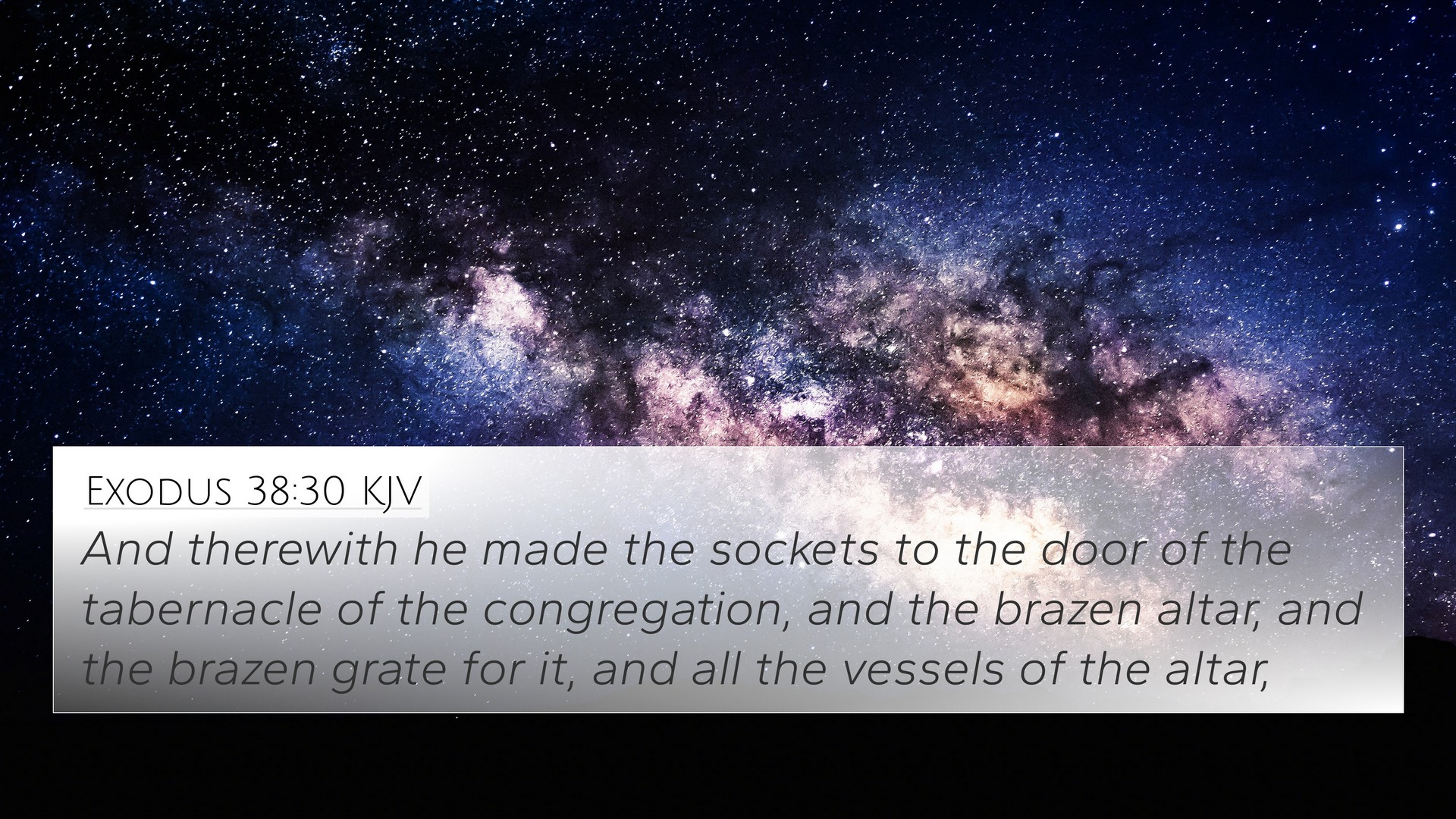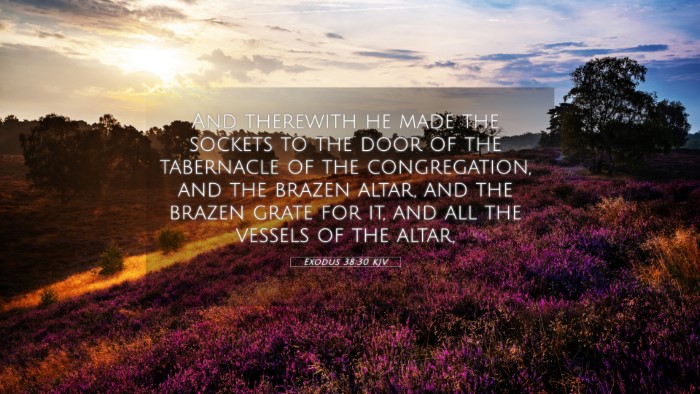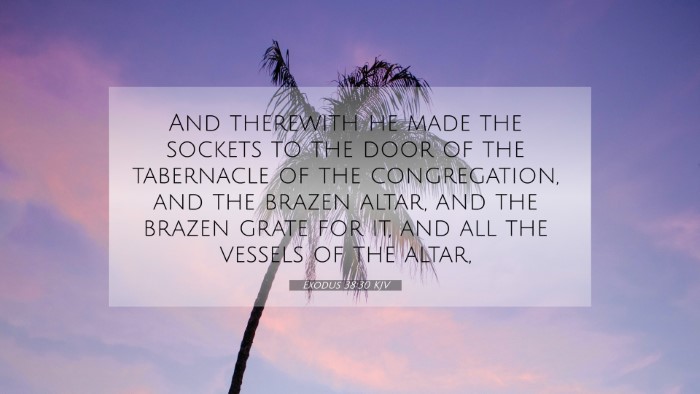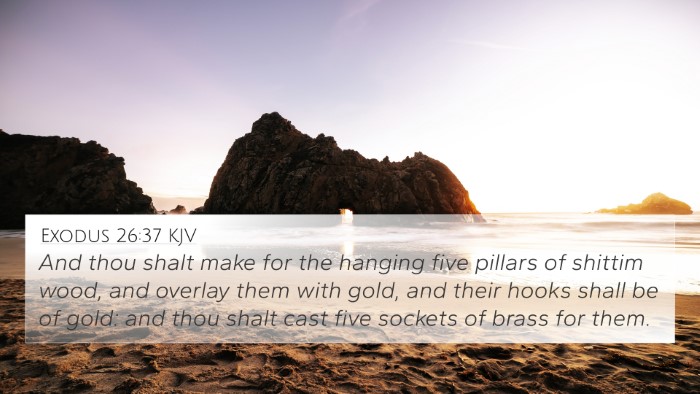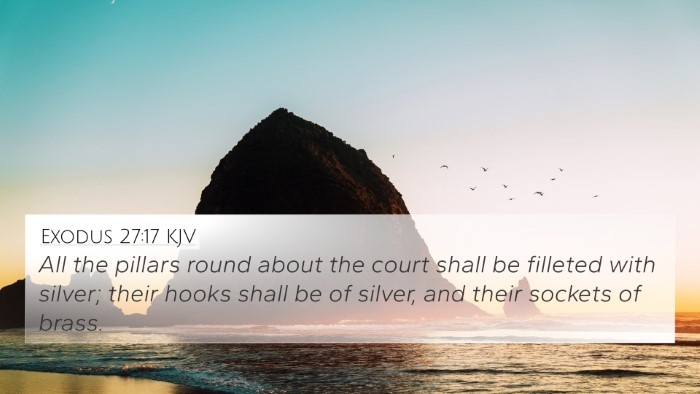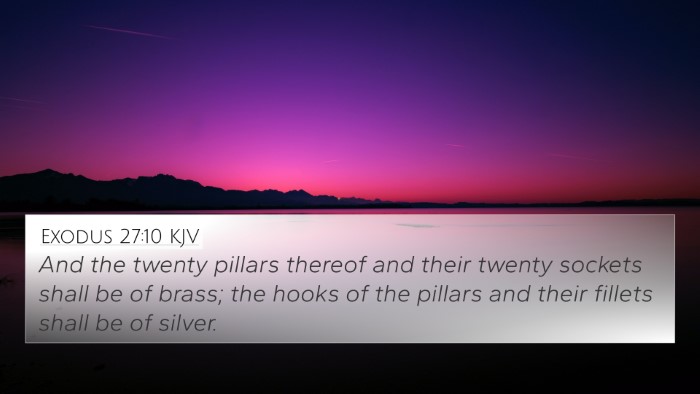Understanding Exodus 38:30
Exodus 38:30 states: "And thou shalt take the atonement money of the children of Israel, and shalt appoint it for the service of the tabernacle of the congregation; that it may be a memorial unto the children of Israel before the Lord, to make an atonement for your souls."
Verse Meaning Summary
The verse highlights the importance of atonement and the dedicated use of funds collected from the people for the upkeep and service of the tabernacle. The use of the term "atonement money" signifies a symbolic act of redemption and responsibility towards spiritual matters.
Insights from Public Domain Commentaries
Matthew Henry's Commentary
Henry emphasizes that atonement money was a way to acknowledge the people's sinfulness and God's grace. This monetary contribution was set apart for sacred purposes, ensuring that the congregation was actively involved in the maintenance of their worship space. It was a tangible expression of their faith and a reminder of their commitment to God.
Albert Barnes' Commentary
Barnes reflects on the idea that the atonement money served a dual purpose: to contribute to the physical sanctuary and to encourage a personal sense of accountability. This act symbolized unity among the Israelites, as each member participated in something far greater than themselves.
Adam Clarke's Commentary
Clarke suggests that this atonement money was a divine mandate and highlights how it serves as a perpetual reminder of the need for atonement and reconciliation with God. He draws parallels to the New Testament, where the sacrificial system is fulfilled in Christ.
Bible Cross-References
- Leviticus 5:15 - Discusses trespass offerings, further relating to the theme of atonement.
- 2 Corinthians 5:21 - Points to Christ as the ultimate atonement for sin, fulfilling the requirements of the Old Testament.
- Matthew 17:24-27 - Involves a tax that is comparative to atonement money and highlights Jesus’ authority.
- Hebrews 9:22 - Explains the necessity of blood for forgiveness, connecting to the sacrificial system.
- Exodus 30:12 - The command regarding the offering of atonement money is established here.
- 1 Peter 1:18-19 - Discusses the value of redemption, linking both Old and New Testament themes.
- Hebrews 10:4 - Clarifies that animal sacrifices could not take away sin, therefore pointing to Christ's sufficiency.
Thematic Connections
Exodus 38:30 is a critical point in the narrative of atonement and redemption in the Bible. It opens up a wider inter-biblical dialogue on themes of sacrifice, responsibility, and community worship. The contributions of the Israelites directly correlate with their spiritual condition and relationship with God, which resonates throughout Scripture.
Cross-Referencing Insights
This verse not only establishes a foundation for understanding atonement but also serves as a launching point for thematic explorations throughout the Bible. The connection between Old and New Testament teachings can be illuminated through an effective use of cross-references:
- Identifying connections between Old and New Testament: The transition from physical sacrifices to spiritual ones represents a key theme.
- Links between the Prophets and Apostolic teachings: Prophetic writings prepare the way for the New Testament understanding of atonement through Christ.
- Cross-referencing Psalms with New Testament teachings: Psalmic references reflect the heart of repentance and atonement that are echoed through Christ’s ministry.
Conclusion
Exodus 38:30 serves as a reminder of the significance of atonement both in historical and contemporary contexts. It encourages believers to actively engage in understanding their role within God’s redemptive plan. The patterns established in this verse influence both personal faith and collective worship, fostering a deeper appreciation for God's commitment to reconciliation with humanity.
